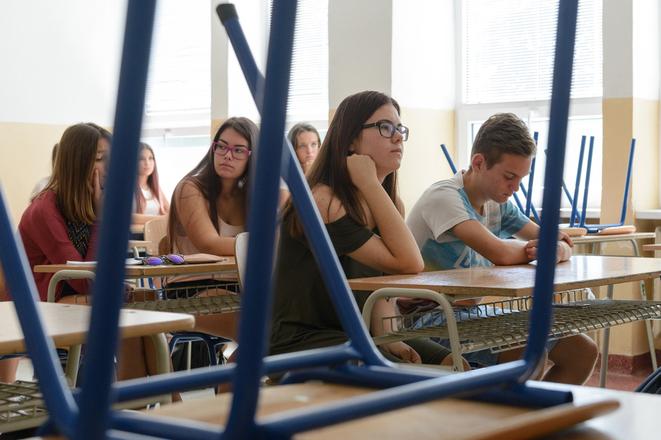This exercise is prepared by the Leaf Academy. It is part of the Spectator College programme and it is linked to the articles: Schools need to respond to extremism and Visits to Holocaust sites work but are not enough.
CONTENT
WARNING
EXERCISE 1: Schools need to respond to extremism
EXERCISE 2: Visits to Holocaust sites work but are not enough
RECOMMENDATIONS
WARNING: These topics are very sensitive and discussions can be difficult, uncomfortable or unsettling. It is important to establish a sense of safety and also to establish discussion norms such as: 1. Take ownership of your language 2. Speak from the “I” using statements like, “I think” “I believe” “In my opinion” 3. Don’t share other people’s comments. These activities are designed to engage with the text and evidence presented, more than they are to present individual points of view. It is our hope that by connecting growth mindset to issues of extremism that students will be more open to intercultural differences wherever they may currently be on that spectrum.
EXERCISE 1 linked to the article: Schools need to respond to extremism
Resources: (optional to use at the beginning of Lesson 3)
Carol Dweck: Ted Talk on Growth Mindset, The Power of Believing You Can Improve (6 minutes)
Growth Mindset Online Assessment: (5 minutes)
Introduction to Growth Mindset (3 minutes)
Website with Introduction to Mindset
Lesson Objectives:
-Read text and demonstrate understanding (comprehension, analysis, connection, and transfer)
-Understand Growth Mindset
1. Warm-up: Introduction to Growth Mindset (10 minutes)
Watch video or read web introduction. (5-6 minutes)
Focused Free Write Prompt: “What mindset would you say you have?” Give an example to explain why. (4-5 minutes)
2.Read Article (10 minutes)
Underline any words you do not recognize or understand.
3. Understanding: (15 minutes)
Have each student share word(s) they did not understand and have other students help to define them.
Summarize in your own words the author’s argument. Share with the group.
Respond to the text. Find a line you agree or disagree with and explain why.
4. Reflection (5 minutes to write, 5 minutes to share)
Write about one thing you learned from the article or one thing that it has triggered for you to learn more about.
EXERCISE 2 linked to the article: Visits to Holocaust sites work but are not enough
Lesson Objectives:
-Read text and demonstrate understanding (comprehension, analysis, connection, and transfer)
-Analyze argument
-Respond to argument and work with evidence
1.Read article (5 minutes)
Underline any words you do not recognize or understand.
2. Understanding: (5 minutes)
Have each student share word(s) they don’t know and define them.
3.Summarize/Monitor Understanding (10 minutes)
Have students identify the author’s main points in the article.
Identify the dissenting and supporting points of view.
4.Focused Free Write: (5 minutes writing, 5 minute discussion)
Prompt: “Those who cannot remember the past are condemned to repeat it.” George Santayana, early 20th century philosopher. Based on this quote, students in Slovakia should, as indicated by the Ministry, visit former concentration camps and memorials. Agree or disagree, and please use evidence to support your point of view.
Have students share what they have written.
5.Discussion (15 minutes)
Look for areas of consensus or dissonance.
Focus on evidence they use to support their position.
Summarize key points.
Next steps: What other activities should students be doing to learn about issues of extremism?
RECOMMENDATIONS: Recommended Usage and Format for Leaf Academy English Lessons
We believe a discussion-based format is best for achieving the learning objectives. We also believe that using the technique Writing as Thinking helps students to formulate their ideas and practice their writing in advance of the discussion. The degree of facilitator and adult involvement will vary according to student background and secondary objectives.
Writing
Model by being willing to write along with students and also to share your writing with the class.
Let them know before writing if they will be asked to share their writing out loud.
Here writing is first thoughts, so poor spelling, punctuation or conventions are not the focus.
Focus on engaging with ideas.
They do not need to apologize for the quality of their writing.
Discussion
Set expectations for active listening and body language
Engage introverts and extroverts, be mindful of dominant voices
Be mindful of how much you are speaking
Manage time
Encourage students to respond directly to each other, and not through the facilitator, using evidence- I agree with Igor’s point because…
Encourage everyone to draw from evidence in the text to support their points, avoid generalizations:
-Can you point to a line in the text
-Can you help me to understand…
-Could you give an example…
Use techniques to encourage other voices
-Let’s hear some other thoughts…
-Let’s hear from someone who hasn’t contributed yet...
Techniques for managing time/discussion
-Put this in the parking lot and move on…
-Let’s pause here…
Parts of the lesson
Focused Free Write- an opportunity for students to write freely, but about a specific prompt.
Reflection- an opportunity to think about the lesson, what they have learned and hopefully how it will help them or how it connects to their life
Underlining words- this strategy is a good habit for students and it also allows them more ownership of their vocabulary
This exercise is prepared by the Leaf Academy and it is part of the Spectator College, a programme created by The Slovak Spectator.


 School, illustrative stock photo. (source: Henrich Mišovič)
School, illustrative stock photo. (source: Henrich Mišovič)